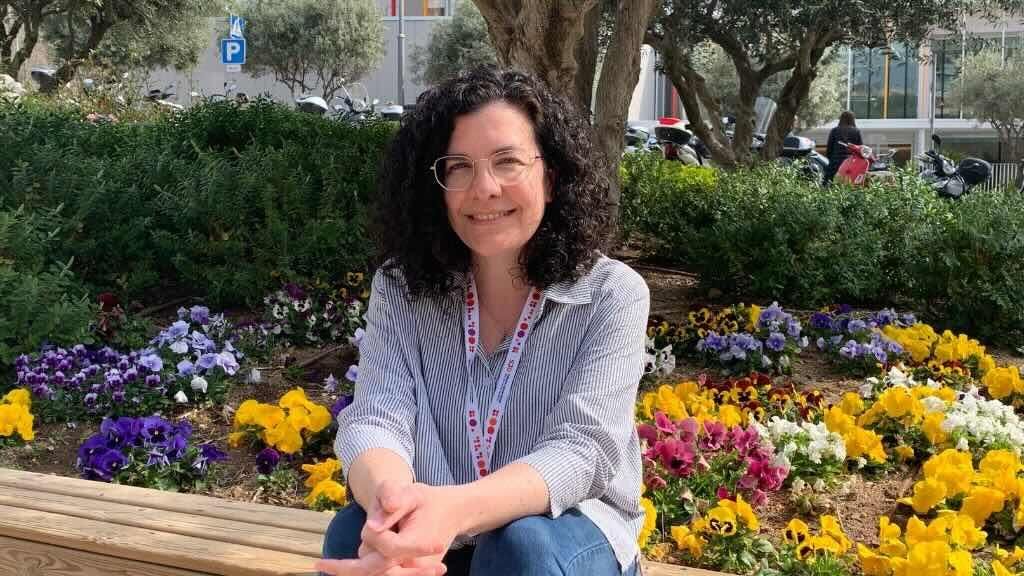‘We provide healthcare to children with cancer in the hopes of finding a cure, promoting wellbeing and quality of life’

Pediatrician Esther Martínez has led the Integrative Pediatric Oncology Unit since its launch in 2019 at the SJD Barcelona Children's Hospital.
As well as her background in pediatrics, Dr Esther Martínez holds a Master’s in acupuncture from the University of Barcelona and is an expert in Nutritional Oncology and Japanese acupuncture from her time at Harvard Medical School.
What is the UOPI and what are its objectives?
The Integrative Pediatric Oncology Unit (UOPI) was founded to fulfil the needs of patients with cancer and their families. We offer a holistic, patient-oriented perspective backed by scientific rigour and medical criteria to reduce treatment toxicity and improve the quality of life of children and teenagers with pediatric cancer. This project is pioneering on a national level and a unique concept on a European scale. Our centre integrates complementary treatments into each therapeutic plan and into the overall medical approach for each patient.
What is the defining characteristic of integrative oncology?
Integrative oncology seeks to fulfil both the physical and emotional needs of patients according to existing scientific evidence and within the framework of conventional medical treatment. Children with cancer under our care have access to our wealth of knowledge, orienting the care they receive towards finding a cure, promoting their wellbeing and improving their quality of life at all stages of their disease, irrespective of their prognosis. The fact that treatments are prescribed and provided at the hospital itself means that each and every one of the patient’s needs are met in a safe environment. This has a hugely positive impact on the patient's wellbeing and quality of life, simultaneously avoiding encroachment of professional roles, unnecessary expenses or unmet expectations.
What techniques or resources are used to help oncology patients?
We offer a wide range of treatments. For example, nutritional oncology, pediatric oncology acupuncture, essential oils, reflexology, etc. In particular, the AFANOC association offers yoga, reflexology and oncology massage. While new to us, these techniques have been widely utilised for decades in the United States and in Canada.
Over the last almost four years, how many patients have benefitted from the unit and what do they and their families have to say about it?
Over 850 patients have been attended to here. Nutritionists carry out around 90 visits per week, the massage and reflexology team around 30, and I personally carry out around 50. Yoga also carries out 4 visits per weeks. With regard to pediatric oncology acupuncture, the most common reasons for appointments are gastrointestinal mobility disorders—nausea, vomiting, diarrhoea or constipation—, tumour pain, neuropathic pain, pain from wound healing, functional and osteomuscular pain, headache and abdominal pain. In total, we have carried out 3,500 acupuncture treatments. We also treat mood disorders, such as psychophysical asthenia, anxiety, insomnia or night terrors.
Both patient and family satisfaction is very high. The majority of parents are very receptive to treatment, and, when they see the results, they begin to request it themselves, considering it an important part of their child's treatment. With regard to personnel, the UOPI was well received by staff members throughout the hospital, and is now thoroughly embedded in our oncology patients’ treatments. I don’t think that anyone could picture an Oncology Department without the integrative unit now!
'We reduce treatment toxicity and improve the quality of life of children and teenagers with pediatric cancer’
What has it meant to have the opportunity to launch and lead this pioneering unit?
For me, it has been a dream come true. However, highlighting the value of non-pharmacological methods as an integral part of oncology treatment and in having a positive impact on the patient has been a huge challenge. On top of that, there are the difficulties that come with leading the first integrative pediatric oncology unit in Spain, as well as creating a comprehensive, integrated care model. That said, it has been a true privilege.
What would you say to those who have provided and continue to provide their support to the UOPI since its inception?
I can only give a huge ‘thank you’. Their involvement in this project has made the lives of countless children with cancer so much better. I want them to know that, whenever I mention the UOPI to families, I always stress that it is only possible thanks to the generosity of its donors. It is essential that patients and their families know how fortunate they are to have this integrative unit available at their oncology healthcare centre.
Where do you see the UOPI in four years’ time?
I see a growing unit, with even more people involved and a wider repertoire of services for our families. We are creating a lot of interest outside of these borders, welcoming students from abroad who come to train at our unit. Right now, we are carrying out seven national and international research projects, as well as two doctoral theses. Creating knowledge and making progress in science is one of our mid to long-term goals. There is no doubt in my mind that we are on the path to becoming an internationally recognised role model, creating a one-of-a-kind care model.



